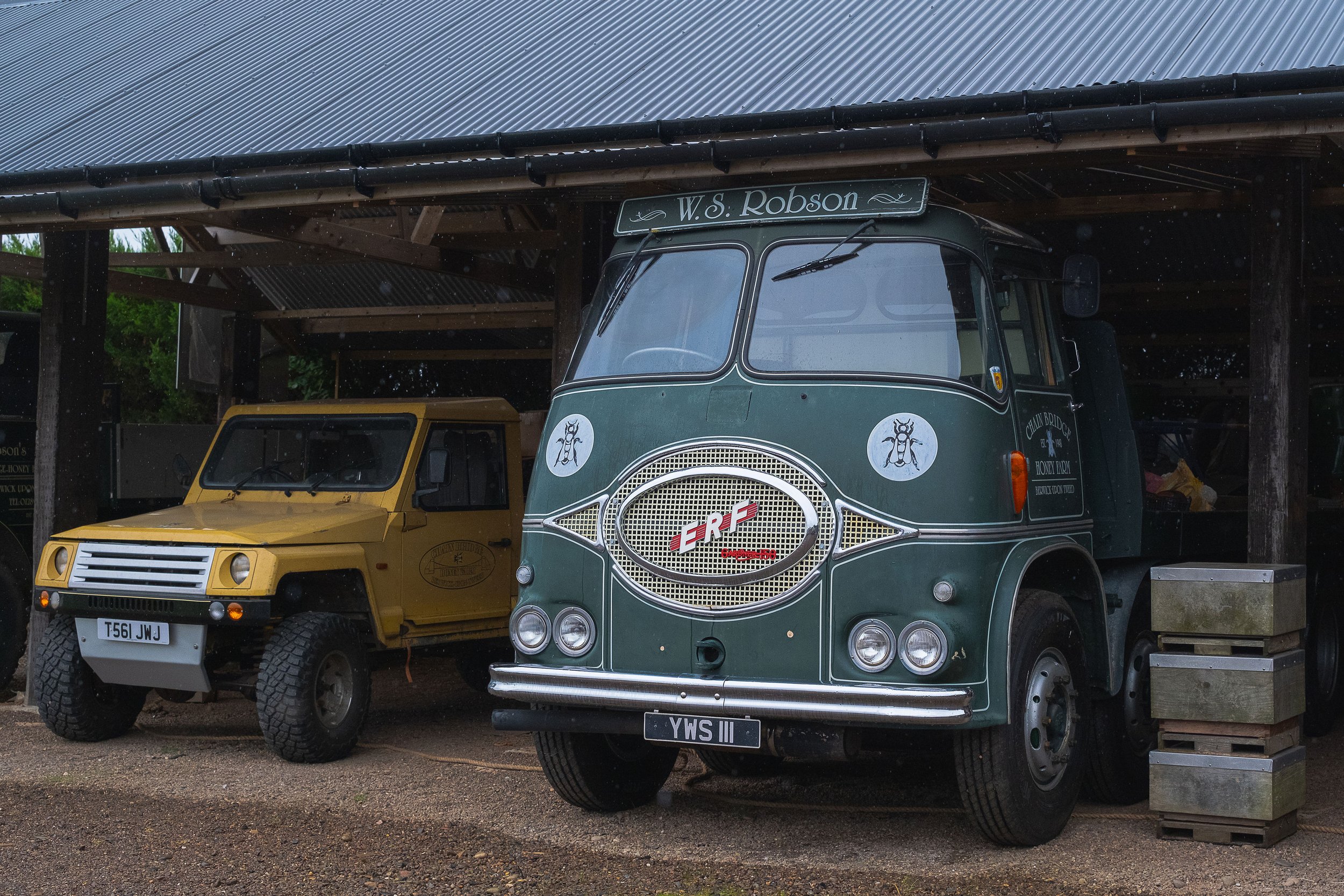Beekeepers of Berwick
Willie Robson and his family have kept honeybees at Chain Bridge Honey Farm near Berwick-Upon-Tweed since 1948. We discover the history of the four-generational family enterprise, the challenges they face and what the future holds for the honeybees on which their operation depends on.
A veteran of the agricultural art of apiology, you could argue that Willie Robson was destined to be a beekeeper. His grandfather and great uncle were both skilled in the practice. His late father, Mr William Selby Robson, was a highly respected figure in the beekeeping world. The Chain Bridge Honey Farm story began almost 75 years ago when Willie’s parents moved to Horncliffe on the south bank of the River Tweed. Initially Willie’s father kept 50 hives and produced modest quantities of honey. It was in 1962 that Willie himself took up beekeeping with the vision to expand his father’s enterprise by increasing the number of hives and the diversity of products produced on the farm. With the help and guidance of his father, Willie was able to establish a viable honey production business and over the years the farm, business and number of apiary sites has grown significantly.
Today Willie is responsible for up to 1800 colonies of indigenous bees across Northumberland and the south of Scotland. Each colony provides the vital raw materials used to create a diverse selection of goods ranging from different varieties of honey, beeswax candles, furniture polish and cosmetic products. The honey farm remains a family business with Willie, his wife Daphne and their children - Stephen, Heather and Frances all employed in various roles.
Willie has always accepted that beekeeping is a volatile occupation. “You can’t sell imaginary honey!” is a line he fondly recalls his father said to him in 1985 after a disastrous season. Over the years beekeepers in Northumberland have been through some very dark days indeed. Unfavourable weather often the cause of unhappy bees and low honey yields. In 1963, for 12 weeks the region was blanketed in 4ft of snow and ice - very few hives were found alive that spring. It was a similar case in 1985, although in both instances the bees soon bounced back. In more recent years it has been long periods of wet weather in the summer months which has led to malnutrition. The summer of 2012 saw eight months of persistent rainfall, returning a crop of honey a third of the farm’s expectations and the business left struggling to meet its lofty demand.
Aside from weather, disease is the other major threat to the health of the colonies and a constant concern around the farm. As such, Willie spends a great deal of time informing the industry and analysing the most up to date research to ensure he is doing all he can to mitigate the risks. Varroa, a parasite that arrived in the UK in 1992, whilst under better control, still continues to weaken honeybee colonies and reduce honey production across the country. Thankfully, colony collapse disorder - an abnormal phenomenon that is thought to occur when honeybees come under great commercial pressure, does not occur in Northumberland. However, the very existence of the disease does serve a strong reminder to the beekeeping world that honeybees are not machines and considerations should suit the bees as much as the keeper.
Over the years Chain Bridge Honey Farm has grown completely organically and the entire business, buildings, workshops, vehicles, machinery and bees have all been financed from profits made from the sale of honey. The health and happiness of the bees has and always will be the primary consideration, and Willie knows all too well without the bees the farm would soon cease to exist. With his family all actively involved in the business and his son Stephen now a fourth-generation Robson beekeeper, the future looks bright. Willie hopes to continue raising awareness of the threats facing honeybees and encourage more people into beekeeping through education, all whilst finding time to indulge in his main interest of restoring vintage tractors.
Photography by Laura Woolley







